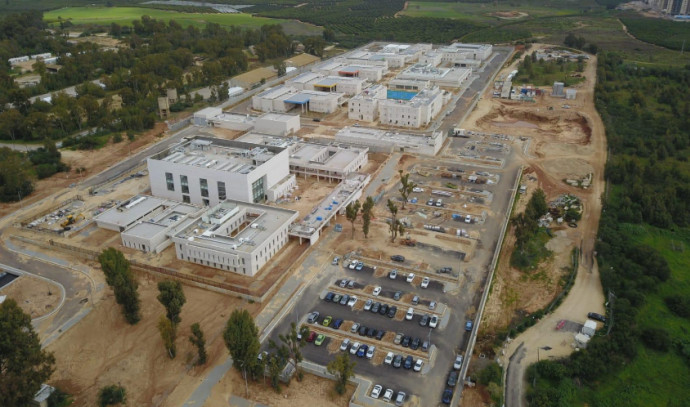History in the IDF: The mythical IDF detention bases four and six are closed, the new prison at the base next door is opened, and any resemblance between the new facility and the old detention bases is absolutely coincidental.
At the IDF’s new detention base, Neve Tzedek, in the Beit Lid camp, final preparations are being made for the incarceration, and the new facility is not similar to the old Prison 4 and Prison 6, where the conditions of incarceration were particularly difficult.
The construction of the facility, which began in 2017, was led by the Ministry of Defense’s Engineering and Construction Division, and after the prison was staffed a few months later, all the military courts will also move to it.
The complex covers 150 dunams, of which 30,000 meters are built. The facility itself has seven detention companies and is fully occupied and is capable of accommodating over 900 inmates.
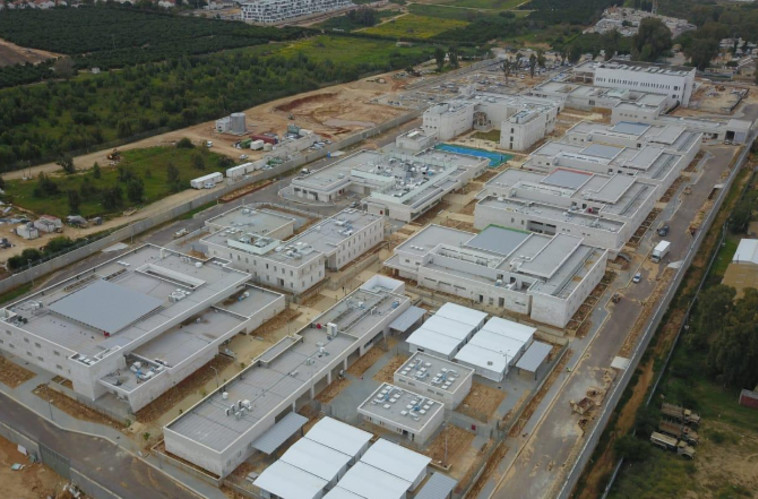 The new detention facility (Photo: IDF Spokesman)
The new detention facility (Photo: IDF Spokesman)Of the seven companies, one company is for girls. Each company except the detention cells has a kitchen, dining rooms, a synagogue, a yard for trips, a canteen and staff offices.
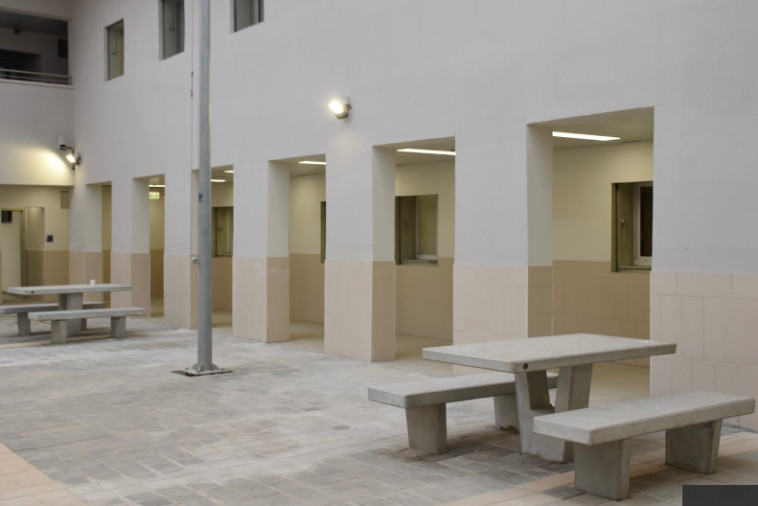 The yard of the girls’ detention company (Photo: IDF Spokesman)
The yard of the girls’ detention company (Photo: IDF Spokesman)Each of the detention cells has toilets, showers and televisions through which staff members can also pass messages to inmates. The detention area is networked with cameras including the rooms themselves except of course the toilets and showers. Each of the incarceration cells is designed for up to a maximum of seven inmates, so certainly the conditions of the inmates are good conditions that cannot be compared in terms of the poor conditions in the old prisons.
The prison complex also has a building for family visits and an employment center for inmates that includes a laundry and a sewing workshop.
The new prison is surrounded by a three-meter-high concrete wall, on which an additional 1.5-meter-high steel fence is installed. Each company in the prison has a slightly different character, depending on the different degrees of offense.
Each prison company has 20 cells, about 140 are imprisoned in each company. The tent company is designed for minor offenses, usually discipline, and for shorter appropriate periods there are 12 tents and room for about 240 inmates.
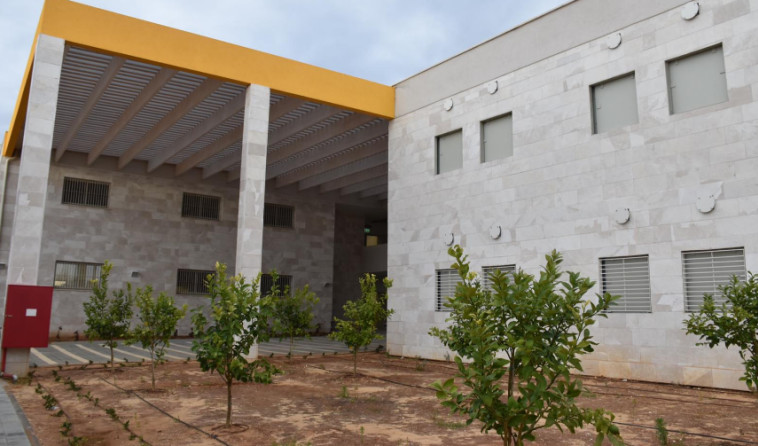 An incarceration company in the “Neve Tzedek” facility (Photo: IDF Spokesman)
An incarceration company in the “Neve Tzedek” facility (Photo: IDF Spokesman)The IDF emphasizes that in the prison, emphasis was placed on strengthening the connection to the IDF and the state, and as part of the rehabilitation process, emphasis was placed on education, classroom learning and even completion of matriculation, as part of the inmate’s extensive response during his imprisonment.
The IDF also intends to adhere to the incarceration policy, so that detainees will be sent to the detention base for a period of more than 28 days, those sentenced to detention for the fifth time in the service or when it comes to serious offenses and serious violence. The soldiers will be sent to alternative detention centers in the guard rooms of the IDF units or of the military target.
About 300 faculty members will operate the prison compound, including prison commanders, ward commanders, company commanders and professionals in various fields, from IDF to medical personnel and mental health professionals.
In the base area, about 700 cameras were installed that are controlled by HFK from each company and a central Knesset prison.
At the base, a center called Resilience was established, which aims to provide rehabilitation and treatment for prisoners, a set of conditions of service, specialist medicine, mental health and a system called Ghalat (factors of return to normal service), whose job is to diagnose prisoners and sometimes provide
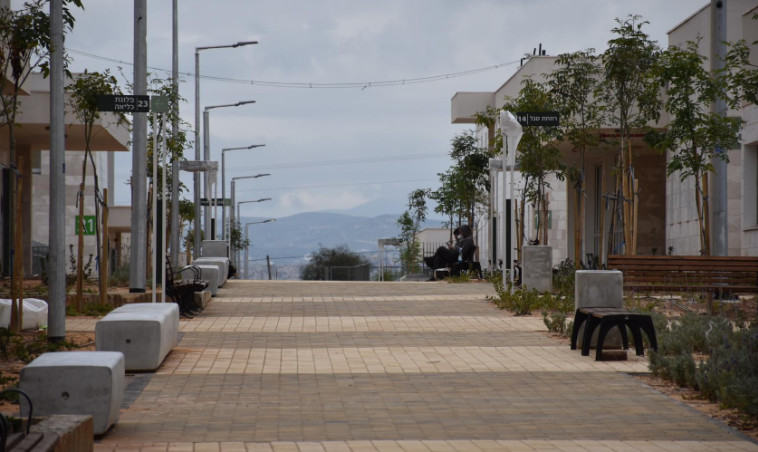 Avenue in the facility (Photo: IDF Spokesman)
Avenue in the facility (Photo: IDF Spokesman)Within the framework of the educational program, emphasis is placed on an education program for each inmate, including participation in various workshops, Hebrew studies for inmates who need it, and the completion of 12 years of study within the prison.
Another significant advantage for the army is that in the near future the courts will also move to a compound near the prisons, so that there will be no need to transport prisoners to the military courts located in different geographical areas in the country.
In 2020, 56% of IDF inmates were incarcerated for the first time, 22% for the second time and 11% respectively were cases of inmates whose third or fourth term of imprisonment was during service.
In the past year 56% of the inmates were detained in detention bases 4 and 6, 26% in detention facilities of the military meter and another 18% in unit guard rooms.
In recent years, the IDF has emphasized to commanders the importance of the call to detention bases only in binding cases, with the intention of minimizing the sending of soldiers for disciplinary offenses to military prisons.
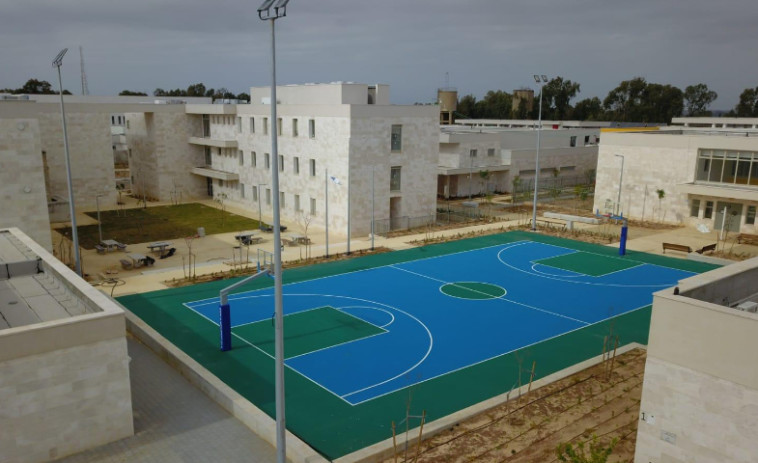 Prison sports complex (Photo: IDF Spokesman)
Prison sports complex (Photo: IDF Spokesman)In the meantime, the military police will focus in the coming year on establishing and institutionalizing a camp defense system, in light of the serious problems of the break-ins to IDF camps. In the large bases in the south, a commander will be appointed to be solely responsible for securing the camp.
The IDF is also concerned about the continued increase in drug use in the military as part of the fact that soft drugs have become more legitimate in civil society and the issue of legalization is on the table.
The head of the police department, Colonel Meital Shoshan, at the Neve Tzedek facility. Photo: IDF Spokesman
The army is investing in enforcement efforts mainly in use within the army and there is a trend of an increase in all IDF units including in the combat units. In about two months the military police will start operating drug sniffer dogs that will perform drug detection scans.
As part of the lessons learned from the suicide of the late Niv Loveton, the intelligence coordinators who will operate sources will only be permanent personnel who will undergo dedicated training in the field, this will be their only profession and they will not perform multiple roles as before. For other reasons, but at the same time it is said that this is necessarily part of tackling the eradication of drug use in the IDF among soldiers, with the consequences of drug use in the combat units being the most significant. At the same time, the IDF emphasizes that the IDF does not use intelligence on operational investigations and training accidents.
